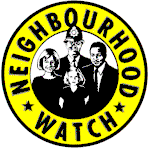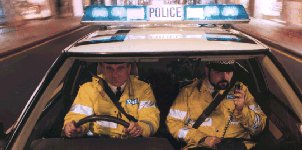|
| OLD HICKORY'S DIARY
Zero Tolerance. William Bratton (one-time Police Commissioner of New York and originator of the idea zero tolerance) tends to deny that the label "zero tolerance" is of much use and so do all the other spokesmen for it, apart from Ray Mallon, a British Detective Superintendent of CID. He speaks of the label with pride –– though he drops it in articles written with the academic Norman Dennis. In those articles we get the theory of demoralisation, rather than poverty, as the major cause of recent rising crime, and individual responsibility is championed rather than the nebulous idea that it is society as a whole that is to blame. These insights seem to be owed to Dennis rather than to Mallon. "Conspiracy Claim by Mallon", Daily Telegraph (p.8), 9 August 2000, reports that Ray Mallon had filed a complaint against the police officers that had opposed him. The Radio 4 programme, On The Ropes, 8 August, told how Operation Lancet had led to Mallon's suspension in December 1997. He had been accused of covering up for two officers who had traded drugs for information. John Humphries asked if Mallon had known that such trading was going on. Mallon replied that he did not know of the trade of drugs for information, hinted that in reality this trade was not going on, and that the whole thing was a trumped up charge by certain senior officers.
Prior to his suspension Mallon was Detective Superintendent of CID at Middlesborough and the leading advocate of Zero Tolerance policing in the UK. This was supposed to be a method of policing pioneered in the USA, but Mallon has claimed he was thinking about it before he found out about the work of William J. Bratton of New York. The IEA brought out a book on Zero Tolerance (1997), Ed. Norman Dennis. The editor sums up Zero Tolerance as three things:
In practise the police seek to stop petty abuse from teenaged gangs on the streets and focus on known criminals with a view to arresting and putting them out of action. Mallon had pioneered this paradigm in Hartlepool where he took over on 18 April 1994 as head of crime strategy for two and a half years. He saw policing as more than just the detection of crime and the arresting of suspects in the wake of crimes. He thought it concerned getting the crime rates down and vanquishing the idea that the streets were not safe at night. In the radio programme, Mallon held that zero tolerance did not stand for an overbearing attitude. But this did not mean that we should ignore anti-social behaviour like dropping litter or menacing people. People do not need to be arrested for things like dropping litter, but they should be ticked off for it. One policeman, Charles Pollard, writing in the IEA book, holds that zero tolerance is really no more than calling for a return of the traditional British policing of the "bobby on the beat". He writes, "The significance of our policing traditions is that, in a limited sense, ‘Zero Tolerance' has always been part of the English policing tradition. As we have seen above, ‘Zero Tolerance' in New York suggests tackling low level disorder and incivilities, albeit through a narrow, aggressive and uncompromising law enforcement approach. Tackling broken windows is something that has always happened in English policing: it is just that we use a different way of explaining it. In England it is enshrined in the concept of ‘the Bobby on the Beat'." When Ray Mallon arrived at Middlesborough, he said he would cut crime there by 20% within 18 months or he would resign. He had given himself only twelve months at Hartlepool. The additional six months at Middlesborough may have been for extra safety, but it was still impressive. The Middlesborough police had a reputation for indiscipline and not really look into crimes that they supposedly went out to investigate. This was the sort of thing that Mallon thought he could end fairly quickly. Humphries questioned him on the methods he might use to achieve his target and asked about the rumour that police records had been adulterated during Mallon's twelve months at Middlesborough. Mallon denied any such thing and said that the rules were not inadequate to get the job of policing done properly. There was no need to alter any records to get results. Zero Tolerance was about morals and ethics. He had had no trouble at all at Hartlepool. Humphries asked him why he moved and Mallon replied that he could not resist the challenge of repeating the Hartlepool results in a fresh place. Zero Tolerance is not a harsh policy but a firm one. British give and take will remain, but a police presence will be felt whenever it is thought to be needed. John Humphries asked Mallon about his ‘stop and search' policy. He replied that those stopped were known criminals, often stopped at 3 o' clock in the morning, and that they were targeted to some extent. Anyone out at 3am should not object if the police asked them a few questions, said Mallon. They were the ones to be discouraged from indulging in crime. About two thirds of crime is committed by one fifth of offenders, so much of it can be cut if a small number of people are closely watched. There is also the idea that by paying attention to petty crime, a potential criminal career can be nipped in the bud. Children who ride their bike on the pavement, or have no light when it is dark, or simply swear in the street are never ignored but ticked off. Mallon made a special target of burglars and hampred the active ones by arresting them. He cut crime in Hartlepool by a third and then took up the job at Middlesborough. Mallon was told not to go there by many, he told John Humphries, but he saw it as a challenge to try the zero tolerance tactics in a new area. But many did not welcome the innovation and were out to torpedo it by getting him suspended on trumped-up charges. Although most of the charges have been dropped he has not been reinstated and he still faces some disciplinary actions – though he has been on full pay all along. As long as policing is defensive of social liberty then it is only reactively coercive and quite liberal. |
|

